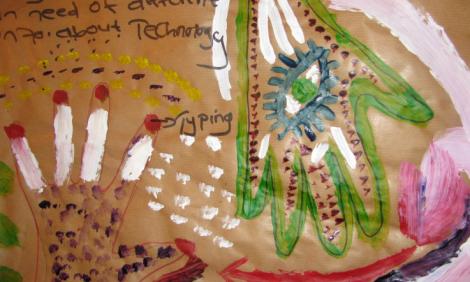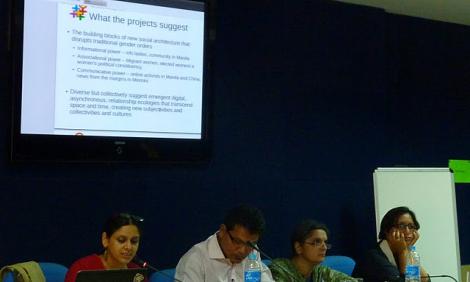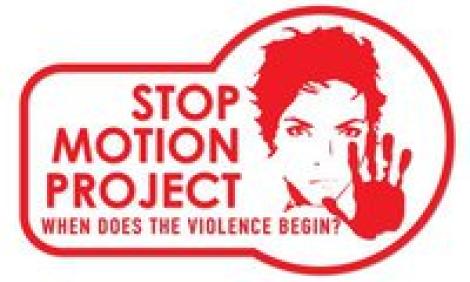
In depth
“Defending yourself means defending your community”
In the second part of the interview with c5 and anonymous, the trainers from the secure online communications workshop provide strategies for mitigating some of the dangers for women's human rights defenders. While examining the practices of policy-makers, internet intermediaries and every day users, they conclude that security means more than just awareness -- it requires behavioural change.

In depth
The changing face of women's rights activism: be careful what you say online
Jennifer Radloff, GenderIT.org contributor, and Running Toddler, a participant of a recently hosted workshop in secure online communications for women human rights defenders, interviewed the workshop's trainers, c5 and anonymous. In this first part of the interview, the trainers talk about their experience in training activists and human rights defenders to use technology securely, and the…

In depth
Secure communications essential to women's rights defenders
Grady speaks to women's human rights defenders from India and Philippines who use ICTs in their work. They share their views how the right to freedom of association is exercised by women through ICTs. Speaking from their own experience, they dispelled some of the common myths surrounding the internet and ICTs use.
Feminist talk
Between four walls: sweeping sexual abuse under the carpet
Nighat Dad from the Pakistan MDG3: Take Back the Tech! project documents the story of a girl who sought her advice at the “Take Back The Tech” event, in Peshawar. The girl was 14 years old, and she was sexual abused for the last 6 years.
Publication
Social Outsourcing as a Development Tool
This paper assesses the impact of a social outsourcing initiative operated by the government of Kerala State, India. Part of this outsources information technology (IT) services to dozens of cooperatives of women from below-poverty-line families in order to improve their socio-economic status. While raising questions about sustainability of the initiative, the research finds that social…
Publication
CITIGEN: April 2011 Review Workshop Report.
The report collects inputs from the workshop organized by IT for Change in April 2011 in New Delhi. The workshop was the part of Asia-wide research programme 'Gender and Citizenship in the Information Society (CITIGEN)' and brought together researchers, scholars and practitioners to share their views on democracy and women's participation, new articulations of citizenship in the information…

Feminist talk
Gender and citizenship in the information society
Arpita Joshi reports on a recent workshop organized by IT for Change, her home organization, in April 2011 in New Delhi. The workshop was the part of Asia-wide research programme 'Gender and Citizenship in the Information Society (CITIGEN)' and brought together researchers, scholars and practitioners to share their views on democracy and women's participation, new articulations of citizenship…
Publication
Pakistan: Violence against Women and ICT
Access to mobile technology is increasing rapidly in Pakistan, and women are also gaining access, albeit at a slower rate than men. Kyla Pasha examines how mobile technology is ripe for use in strategies of empowerment, as long as access to technology is accompanied by training and orientation.
Publication
Feminist Tech Exchange - using technology in activism on women's rights (video, 15mins)
Dafne Plou presents on how dozens of Feminist Technology Exchanges - a series of capacity building workshops - are building the skills of women's rights organisations to use information and communication technologies in campaigning, monitoring and documentation to end violence against women. This presentation was part of the "Take Back The Tech! Reclaiming technology for women's rights" session…

Publication
STOP MOTION PROJECT – When does the violence begin?
The three-part video campaign STOP MOTION PROJECT – When does the violence begin? aims to encourage discussion and promote awareness on violence against women through creative storytelling and the use of stop-motion animation. The mission of STOP MOTION PROJECT is to empower and support organisations and individuals in and through the use of information and communication technologies (ICTs) for…




